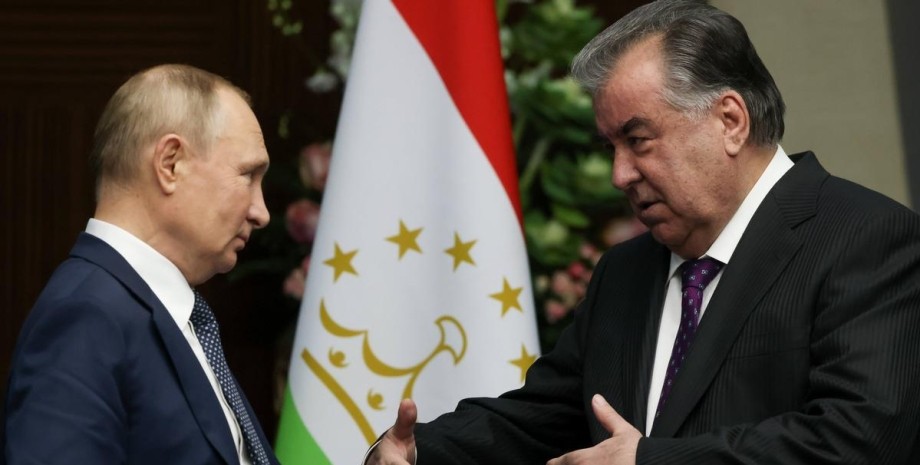
The publication notes that five former Soviet republics have realized their power, as Russia is looking at their markets and trade routes in an attempt to bypass Western sanctions. The changed situation clearly demonstrated a recent meeting of Russian President Vladimir Putin with the leader of Tajikistan Emomala Rahmon at the CIS summit in Kazakhstan.
Rakhmon, who heads one of the smallest and poorest countries in the region, has spoken to the Russian colleague for seven minutes that Moscow's attitude has not improved since the Soviet era, she still regards Tajikistan as his back yard. "We want respect. Nothing else. Respect," said Emmala Rahmon, forcing Putin to be nervous. Rakhmon made it clear that in September Moscow was sent to an investment conference in Dushanbe only by the Deputy Minister, demonstrating her attitude to this country.
The Russian dictator at the summit urged its partners to build new logistics chains, as Western sanctions hit Russia's trade. Statistics show that Central Asia countries have already dramatically increased foreign trade turnover, apparently with the help of re -export of goods in the Russian Federation. However, they do not want to go further, at least if Russia does not offer them serious investments.
"Central Asian states, noting more than Russia's interest in the region and the emergence of a certain dependence on it, took advantage of the situation to express their images and establish equal relations in which Russia at least partially conceded its role as" older brother ", - said Kazakhstan political scientist Rustam. Burnashev. The publication notes that earlier Moscow has traditionally acted as a police officer in post -Soviet conflicts.
However, it is increasingly difficult for Russia to perform this function due , which in September almost led to a full -scale war between the two countries. Although Putin hoped to resolve the conflict, he failed: Rachmon and Zhaparov did not shake his hands. More, this conflict prompted Zhaparov to miss the informal meeting Dedicated to the Day of N. Putin's augmentation on October 7.
Kyrgyzstan also postponed the planned military exercises by Russia -led by the Military Bloc of the CDU in its territory and refused to participate in such exercises in Tajikistan. Russia's relations with Kazakhstan, whose President Tokaev, during a summit in Astana, did not hold a bilateral meeting with Putin during a summit in Astana. However, he met face-to-face with the leaders of Turkey, Qatar, Azerbaijan.
Tokayev also complained about personal attacks on national leaders who "poison the atmosphere of cooperation" in the post -Soviet space, apparently, referring to the frequent criticism of the Kazakh leadership in the Russian media. Now even Kazakhstan's state television shows that the war in Ukraine calls into question the existence of post -Soviet unity. However, Kazakhstan and Uzbekistan, the largest countries in Central Asia, are trying not to hostile with Moscow.
According to British expert from Central Asia Alisher Ilhamov, they still believe that they may need Russia's assistance in a crisis. However, in the long run, if the Russian Federation is also a military failure in Ukraine, China will take the place of "older brother". "At present, we see that Russia is inferior to China of this role of the chief patron saint of Central Asia. The vacuum will be filled in China step by step," Ilhamov said.
We will remind, during the CIS summit in Astana, Vladimir Putin stated that there was no need in massive missile strokes in Ukraine and emphasized that he did not regret the decision to solve the war. It was also reported that at the CIS summit, Putin called on "goodwill" in the settlement of conflicts, but did not mention the war in Ukraine. According to Putin, there are differences and conflicts for all the positive interaction within the Commonwealth.










All rights reserved IN-Ukraine.info - 2022